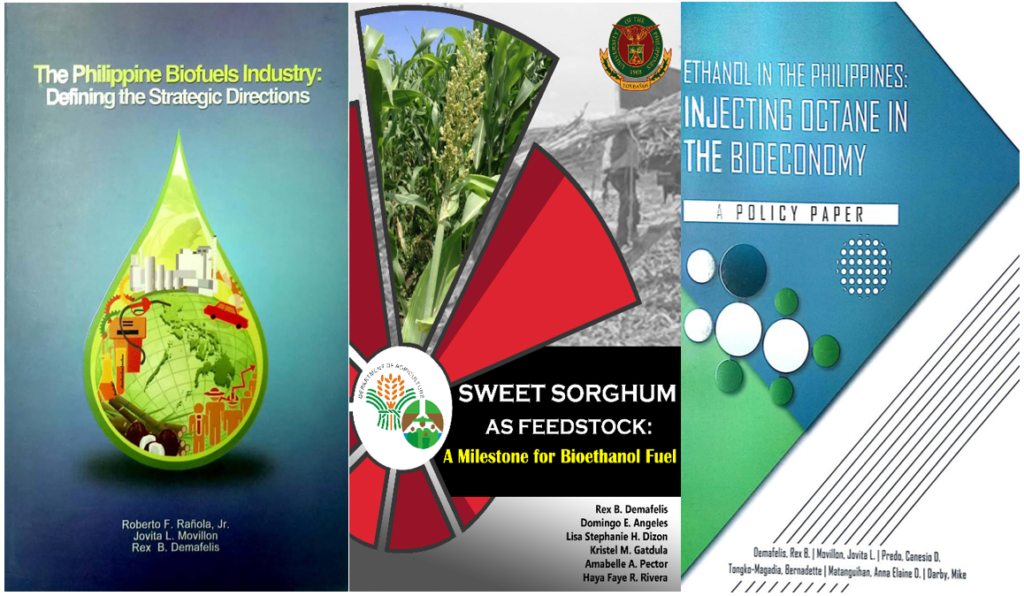By: Kristel M. Gatdula, Lisa Stephanie H. Dizon and Butch G. Bataller
With the belief that knowing spells the difference, the Biofuels Research Team released books, policy paper and ISI-based journal articles that provide handy reference to policy makers and industry players. The biofuels books entitled The Philippine Biofuels Industry: Defining the Strategic Directions published in 2015 and Sweet Sorghum as Feedstock: A Milestone for Bioethanol Fuel published in 2018, are culmination of series of studies on the production of biofuels from different feedstock sources. The books are products of joint effort between the university and the Department of Agriculture – Bureau of Agricultural Research. The books lay out the relevant aspects that encompass the domestic prospects of biofuels. The books view that the country’s biofuels industry will only succeed if all stakeholders from the agriculture sector, business sector, automotive industry, the end-users / consumers, government agencies, financial institutions and the general public collaborate and are guided by a common vision. The policy paper on Ethanol in the Philippines: Injecting Octane in the Bioeconomy, on the other hand, analyzes the pros and cons arising from the Philippine Biofuels Act of 2006. The policy paper serves as one of the commitments of the team to the university mandate “to relate its activities to the needs of the Filipino people and their aspirations for social progress and transformation”. In addition, two journal special issues were already published by team, through the Journal of Environmental Science and Management and Philippine Journal of Crop Science. Publications are in line with one of the missions of UPLB Interdisciplinary Biofuels Research Studies Center, which is to serve as a repository of data and information on biofuels research, developments and policy formulation and recommendation studies relevant for the Philippines and even with other countries.
The UPLB Biofuels Research Team gave birth to a robust, successful and highly competitive biofuels industry through a strong and clear vision for vibrant, sustained and sound research and development programs that made a major impact on the environment, energy security and social development that will leave a legacy to the next generation. The team will continuously strive to be at the forefront of biofuels RDE for the betterment of society.
